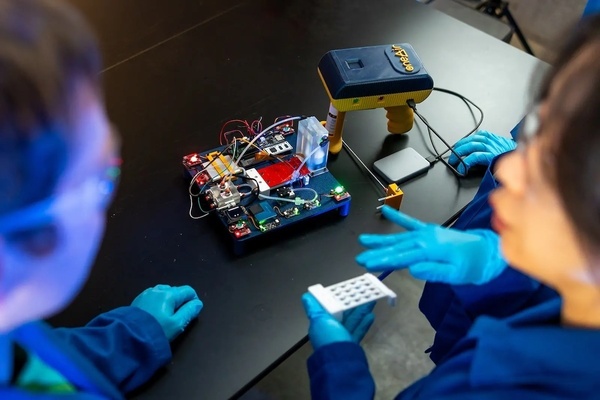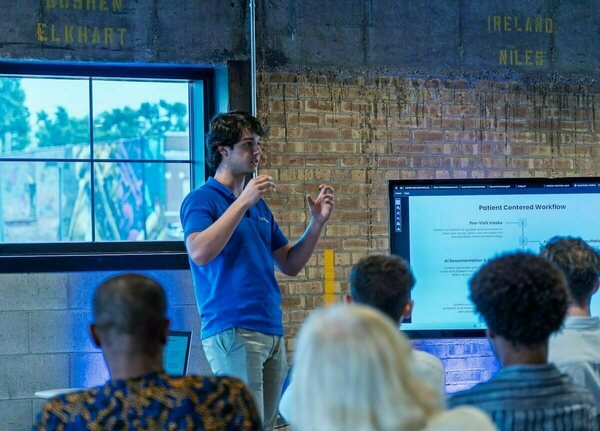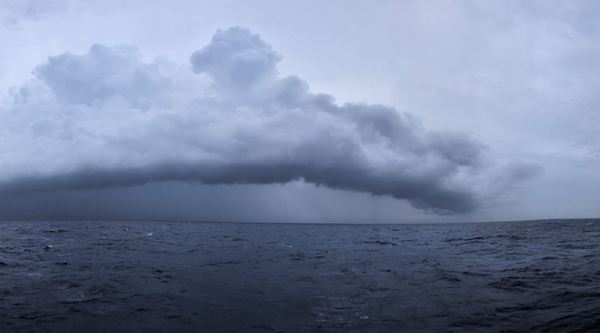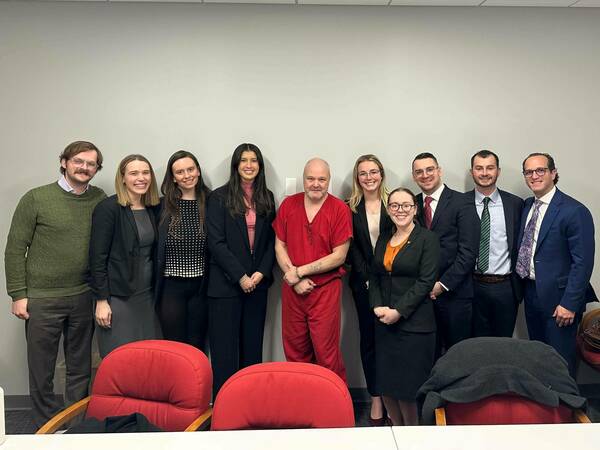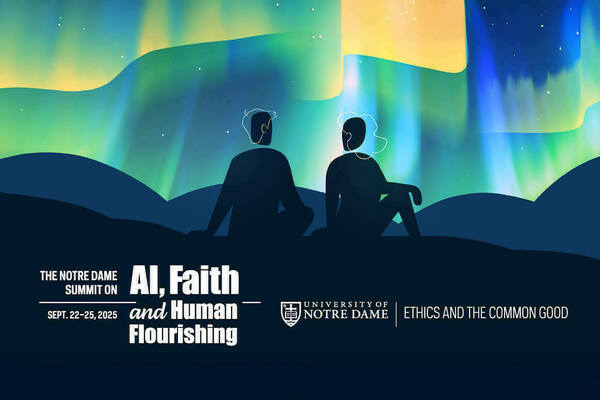Notre Dame joins STARS College Network to support small-town and rural prospective students
The University of Notre Dame has joined the STARS College Network, which partners with top colleges and universities to ensure students from rural and small-town America have the information and support they need to enroll and graduate from selective institutions.
Notre Dame is one of 16 institutions joining the STARS (Small Town and Rural Students) College Network this year, as the organization doubles its membership to include 32 of the nation’s most prominent schools.
“Notre Dame is honored to partner with STARS in its mission to increase access to exceptional higher education for students from small-town and rural communities,” said Vice President for Undergraduate Enrollment Micki Kidder. “Students from rural communities flourish at Notre Dame, contributing their unique talents and perspectives, enriching our vibrant campus community and benefiting from a Notre Dame education.”
In 2023, its inaugural year, the STARS College Network opened doors to higher education for more than 288,000 students with 16 member institutions. It is supported by a $20 million gift from Trott Family Philanthropies. New STARS member institutions this year, along with Notre Dame, are Amherst College; Auburn University; Dartmouth; Duke University; Georgia Institute of Technology; Southern Methodist University; Spelman College; Stanford University; University of Alabama; University of Arizona; University of Arkansas; University of California, Berkeley; University of Denver; University of South Carolina; and University of Texas at Austin.
An estimated $7.4 billion will fund STARS’ mission over the next decade, which includes the financial aid provided directly by participating institutions to students and expanded support for the initiative from foundations, nonprofits and new funding from governmental agencies. Trott Family Philanthropies will build on its initial gift with an additional investment of more than $150 million over 10 years in programs that prepare, recruit and support rural students.
This extraordinary growth follows a year in which STARS outreach connected with 1.6 million people, including students, families, educators, administrators, foundations, legislators, companies and other organizations.
“STARS’ first year demonstrated that there is an appetite and imperative for our nation’s leading universities and colleges to better serve the massive talent pool in our small towns and rural regions,” said Byron D. Trott, chairman and co-CEO of BDT & MSD Partners. “STARS and its affiliated programs are opening doors in higher education for high-achieving rural students they might not have found otherwise, and the students, campuses and our economy will all be the better for it.”
Students from rural America often face unique obstacles to attending college. Although students in small towns and rural communities graduate high school at roughly the same rate as students in metro areas, they are only half as likely to graduate from a selective college or university.
“As a driven and motivated individual from a rural community, Notre Dame has allowed me to finally pursue countless career opportunities that are often inaccessible within rural areas,” said sophomore Madison Cunningham, a political science major from Otis, Colorado. “Notre Dame has given me the confidence and resources I need to hopefully serve as an attorney for marginalized individuals in the future. I have truly been fulfilled in ways I never imagined possible.”
STARS simultaneously addresses a variety of obstacles that contribute to this disparity. Because of distance and cost, college admissions offices may bypass small towns and rural communities. Students in those areas are less likely to encounter college-related ads or attend events on campuses.
In alignment with Notre Dame’s belief that every student, regardless of background, should have access to a transformative education, the University intends to thoughtfully engage and invest in students from small towns and rural areas across the country.
The Notre Dame Enrollment Division plans to
-
visit high schools in rural communities and develop partnerships with rural community-based organizations
-
expand Notre Dame’s Midwest Visit Day to bring students from rural areas to experience Notre Dame’s campus
-
fund rural student participation in summer pre-college programs
-
strengthen relationships with rural school counselors via an advisory board
College counselors in rural high schools are often overburdened, if the school even has a counselor. The average national caseload for rural counselors is 310 students, with a high of 574 in Michigan. This means that students may have less access to educators and college access professionals who have broad experience and familiarity with the full spectrum of college opportunities.
Importantly, these students may not think they can afford college. Many do not have the networks and resources to help them understand the financial aid and other support available to them.
STARS founding members are Brown University, California Institute of Technology, Case Western Reserve University, Colby College, Columbia University, Massachusetts Institute of Technology, Northwestern University, Ohio State University, University of Chicago, University of Iowa, University of Maryland, University of Southern California, University of Wisconsin-Madison, Vanderbilt University, Washington University in St. Louis and Yale University. STARS is led by the University of Chicago and Vanderbilt, and headquartered at the University of Chicago.
Originally published by at news.nd.edu on July 24, 2024.
Latest Research
- Fighting for Better Virus DetectionAn electronic nose developed by Notre Dame researchers is helping sniff out bird flu biomarkers for faster detection and fewer sick birds. Read the story
- Notre Dame’s seventh edition of Race to Revenue culminates in Demo Day, a celebration of student and alumni entrepreneurship…
- Managing director brings interdisciplinary background to Bioengineering & Life Sciences InitiativeThis story is part of a series of features highlighting the managing directors of the University's strategic initiatives. The managing directors are key (senior) staff members who work directly with the…
- Monsoon mechanics: civil engineers look for answers in the Bay of BengalOff the southwestern coast of India, a pool of unusually warm water forms, reaching 100 feet below the surface. Soon after, the air above begins to churn, triggering the summer monsoon season with its life-giving yet sometimes catastrophic rains. To better understand the link between the formation of the warm pool and the monsoon’s onset, five members of the University of Notre Dame’s Environmental Fluid Mechanics Laboratory set sail into the Bay of Bengal aboard the Thomas G. Thompson, a 274-foot vessel for oceanographic research.
- Exoneration Justice Clinic Victory: Jason Hubbell’s 1999 Murder Conviction Is VacatedThis past Friday, September 12, Bartholomew County Circuit Court Judge Kelly S. Benjamin entered an order vacating Exoneration Justice Clinic (EJC) client Jason Hubbell’s 1999 convictions for murder and criminal confinement based on the State of Indiana’s withholding of material exculpatory evidence implicating another man in the murder.
- Notre Dame to host summit on AI, faith and human flourishing, introducing new DELTA frameworkThe Institute for Ethics and the Common Good and the Notre Dame Ethics Initiative will host the Notre Dame Summit on AI, Faith and Human Flourishing on the University’s campus from Monday, Sept. 22 through Thursday, Sept. 25. This event will draw together a dynamic, ecumenical group of educators, faith leaders, technologists, journalists, policymakers and young people who believe in the enduring relevance of Christian ethical thought in a world of powerful AI.








